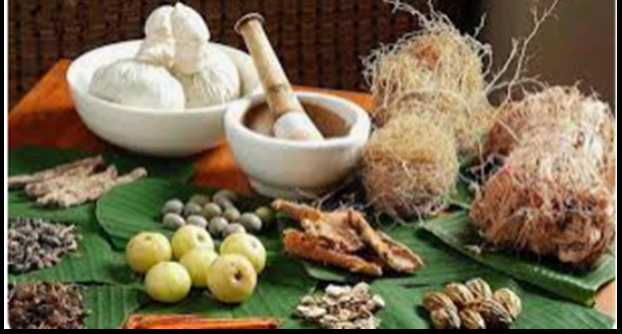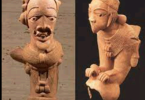Traditional medicine is a centuries-old method of healing with nature-sourced materials. It is commonly practiced all over Nigeria, and in many native societies across the globe. In Nigeria, several people (especially poor folks) continue to patronize traditional medicine as a cheap alternative to modern medicine. It is perceived as more effective and with less side effects than modern medicine by many locals. However, many of these beliefs often lack scientific proof. But with some degree of effectiveness observed with traditional medicine, modern medical research is gradually making contributions and inquiry into it.
Traditional medicine combines one or more healing materials which include plants, exercises, minerals, healing stones, and spiritual therapy. Traditional medicine for now is typically not taught in (most) modern schools of medicine; and much of it is not documented. Therefore, traditional medicine is not as well regulated or standardized as modern medicine. Rather, its practitioners have relied on centuries-old, accumulated knowledge passed down the generations.
A Move Towards Recognizing and Promoting Traditional Medicine in Nigeria
The World Health Organization (WHO) in 2000 described Traditional Medicine as:
‘…the sum total of the knowledge, skills and practice based on the theories, belief and experiences indigenous to different cultures, whether explicable or not, used in the maintenance of health as well as in the prevention, diagnosis, improvement or treatment of physical and mental illnesses.’
WHO understood that traditional medicine must be studied in the context of the historical experiences of a particular human community with regard to illness and diseases. It involves the peculiar social and ecological exposures of that community; and their acquired or accumulated values and practices in medicine across centuries. Thus, each human community (or tribal group) seemed to develop its own unique traditional medicine system, some for as long as thousands of years.
However, European colonization of Nigeria came along with a prevalent aversion for, and distortion of how traditional practices (including traditional medicine) is perceived. That downgraded perception went beyond the Europeans to influence how the educated elite (including medical practitioners) viewed traditional medicine in Nigeria.
In 2004, the Nigerian government established the National Policy on Traditional Medicine, Laws and Regulations in a bid to promote traditional medicine in the country. In another move, the Council for Traditional Alternative and Complementary Medicine Practice in Nigeria was birthed by the Federal Ministry of Health in 2020.
Though both initiatives are laudable, none of them possess any legal framework to regulate the practice of traditional medicine in Nigeria. Additionally, many of these herbal medicines lack quality control, with the clear possibility of containing harmful substances.
Why Integrating Traditional Medicine into Modern Medical Practice in Nigeria is Recommended
The role played by traditional medicine practitioners in catering for Nigeria’s teeming population is quite significant. It is equally clear that traditional medicine is a link to highly potent natural products. These products can be used to develop trusted drugs to manage and/or cure many health problems. Additionally, there is an ongoing global focus on increased research into trado-medical practices (for the same reason). This follows the observation that certain chronic health problems have defied standard medical treatments.
Yet again, traditional medicine applies a holistic approach to health issues – it focuses even more on disease prevention (rather than cure). Traditional medicine is often a combination of methods that involve the use of herbs and health-boosting organic foods. Pharmaceutical drugs often focus on just one (or a few) active ingredients. On the other hand, trado-medical solutions offer a combination of natural ingredients that work together. These ingredients may rather strengthen tissues and organs of the body to fight the disease, and not necessarily target the direct cause of the disease. These practices definitely need evidence to support their adoption.
Additionally, the 1960s witnessed a change in perception towards traditional medicine – both in Nigeria and in many developing countries. Without doubt, Western healthcare systems have remained increasingly expensive; and falls short of the health needs of most people. Thus, the trend is gradually shifting towards studying and integrating traditional medicine into conventional healthcare systems. And it needs to be sustained.
Solving The Challenges of Traditional Medicine in Nigeria
There is a need to carry out extensive research and documentation of traditional medicine in the country’s many learned institutions and medical research centers. With this in place, it will further encourage more Nigerians to use tested (and trustworthy) traditional medicine. This is critically needed in Nigeria – a country with an amazing variety of wildlife and bio-resources. There are abundant sources of medicinal materials from the natural environment, which should not be ignored. And with over 300 ethnic groups in Nigeria, there is an awareness that traditional medicine in the country is as equally diverse.
It is noteworthy that China and India invested in dedicated research into their alternative and traditional medicine practices. And today, both countries have gained worldwide acceptance for their efficacy in trado-medical products. For now, no known Nigerian university offers standardized courses in traditional medicine. The Open International College of Naturopathic Medicine is currently the only globally recognized Nigerian institute offering courses in traditional medicine. It is endorsed by the World Naturopathic Federation.
Yet again, many existing traditional medicine practice centers in Nigeria do not measure up to standard clinical practice guidelines. Nor do most of them have enough research-backed evidence to be included in conventional medical practice or healthcare in general. However, a few traditional medicine practitioners are taking strides in the area of research and clinical standardization. Akolade Natural Medical Center, and PAX Herbal Clinic are two such examples. Such initiatives need to be encouraged.
Furthermore, the Nigerian government needs to collaborate with public and private stakeholders to pursue trado-medical research and implementation. It would encourage the development of effective and cost-friendly traditional medicine solutions that would better serve the health needs of low-income earners in the country.








